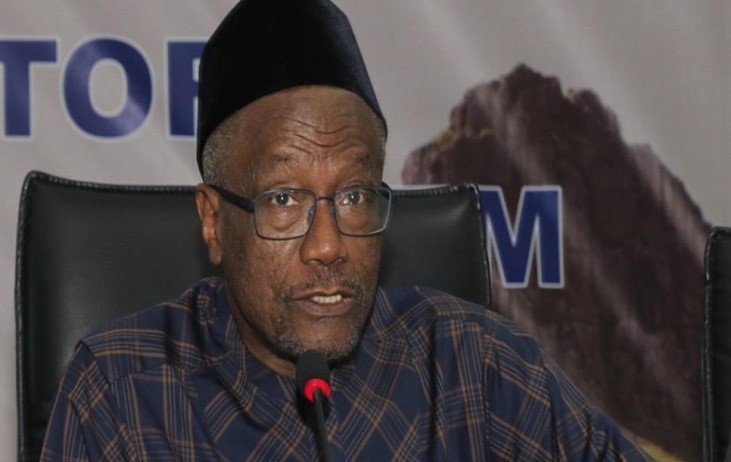PEFA workshop targets six local councils
Bo, March 1 (SLENA) – The Local Councils Internal Public Expenditure Financial Accountability (PEFA) workshop organized by the Public Financial Management Reform Unit (PFMRU) of the Ministry of Finance and Economic Development (MoFED) continued in Bo with six local councils drawn from the four regions of the country as participants.
The workshop commenced on Wednesday last week with the Deputy Financial secretary, Mrs. Maltida Williams performing the opening ceremony.
It should be recalled that since 2002 there has been enormous progress in rehabilitation and reconstruction programmes with good governance and effective public sector management leading the government’s transitional strategy.
Decentralization and Public Financial Management (PFM) reform were prioritized, resulting in a Local Government Act (LGA 2004), which gives mandate for the establishment of Local Councils and made provisions for local councils to be autonomous in financial and human resource management.
A statutory instrument made under the Act sets out a time schedule of functions to be devolved from the central government MDAs to local councils year by year. Though not all of the functions have been devolved, most of the major functions have however been devolved including but not limited to primary, secondary and tertiary health care for the city councils, etc.
Reforms have been guided by a series of increasingly comprehensive action plans. Implementation of the current reform strategy has been supported principally by the Integrated Public Financial Management Reform program (IPFMRP), a multi donor trust fund managed by the World Bank with contributions from EU, DFID and ADB that is due to be completed in 2014. The ADB is also supporting the strengthening of PFM in local councils as part of the Public Financial Management Business Enabling Support project (PFMBESP).
Recently, the Government of Sierra Leone prepared a PFM reform strategy to guide reforms between 2014 and 2017. The strategy is designed to support implementation of the national development plan and the agenda for prosperity, which will guide the government policies over the same period.
The Government of Sierra Leone has requested assistance from development partners to implement the Public Financial Management Reform Strategy 2014 – 2017 and the World Bank through a Multi-Donor Trust Fund is developing a new project (Public Financial Management Improvement and Consolidation) to replace the IPFMRP.
The objective of the internal PEFA exercise came about due to the fact that the level of understanding of the PEFA performance measurement framework is low at the local government level. It was therefore essential that internal training and assessment be conducted for selected local councils so that core functional staff of the councils will be capacitated in the PEFA Framework and Methodology.
The 2010 PEFA Assessment Reports showed weaknesses in almost all the performance indicators for local councils except for few indicators. The training at the end of the day will enable participants to better understand the PEFA performance indicators (PIs) and how they can be applied as tool in measuring PFM performance at local government level.
Director of Internal Audit at MoFED, Kandeh Sesay, said the purpose of the workshop is to improve the quality of PEFA assessment reports, enhance government capacity to take ownership of the assessment process, enhance donors’ awareness of the assessment process and coordination of their contributions and improve understanding of how to make use of PEFA reports for various purposes.
He added that the Public Expenditure and Financial Accountability (PEFA) was created by a consortium of international organizations for the purposes of evaluating a country’s financial management systems and monitoring progress in improving those systems overtime.
He pointed out that the goal of PEFA is to help improve government financial management systems, stating that the program has approached this goal by developing a tool to measure the strengths and weaknesses of a country’s public financial management systems, and by promoting processes that enhance government ownership of PFM reforms and lead to stronger collaborations and coordination among the donor agencies that support the formulation and implementation of the reform programs.
Mr Kandeh Sesay, said the motivation behind the PEFA programme, which was established in 2001, was to strengthen the ability of aid recipient and donors to assess and improve country public expenditure, procurement and financial accountability systems. He informed participants that PEFA was not an audit or a witch hunt but that geared towards enhancing the PFM system in government, adding that the self assessment will help councils know their areas of weaknesses and make the necessary amendments before external assessment.
Senior Economist in the Local Government Finance Department (LGFD) at MoFED, Adams Tommy, said PFMRU the Decentralization Secretariat and the Local Government Finance Department (LGFD) have been part of the process for quite some time, since 2004, noting that the capacity building drive was an ongoing process.
He said they are not just at the workshop to do a self assessment of performance but that if the ratings are high they might attract some funding from donors and admonished the councils to take the exercise very important, saying when the last PEFA was conducted in 2010 there were gaps and that the PEFA assessment itself covers both the central government and local councils.
The senior Economist maintained that for the councils for which the PEFA assessment was done, some of the ratings were good while others were not too good. He made it clear that they want to assess themselves to see were the weaknesses are in order for them to prepare the ground before the final assessment, noting that at the end of the day the ratings will be good and they will attract more funding.
Adams Tommy noted if the central government attracts more funding the councils will receive more funds.
Balu Kamara, a representative from the Decentralization Secretariat and Patricia Rowe from the National Public Procurement Authority (NPPA) made meaningful contributions.
HB/MoFED/SLENA
Stay with Sierra Express Media, for your trusted place in news!
© 2014, https:. All rights reserved.






